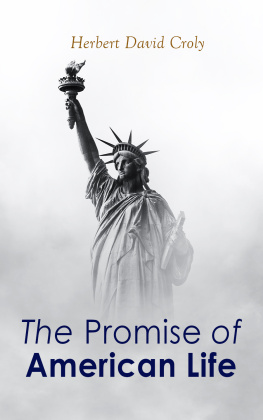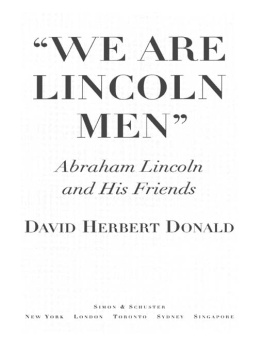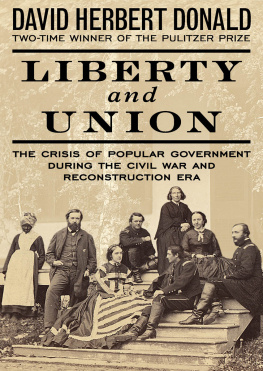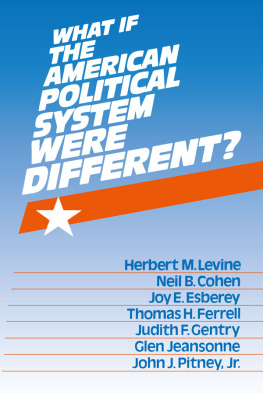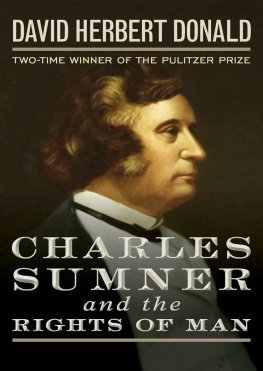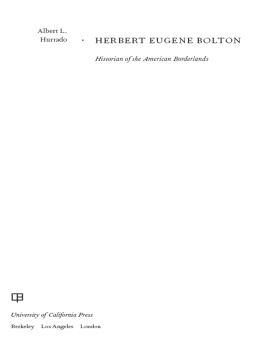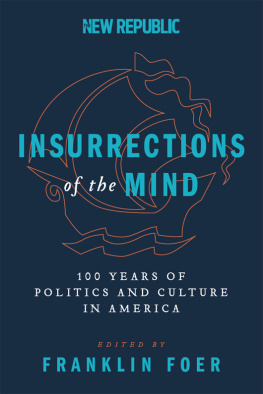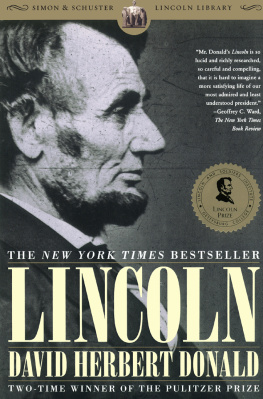Herbert David Croly - The Promise of American Life
Here you can read online Herbert David Croly - The Promise of American Life full text of the book (entire story) in english for free. Download pdf and epub, get meaning, cover and reviews about this ebook. year: 2019, publisher: e-artnow, genre: Politics. Description of the work, (preface) as well as reviews are available. Best literature library LitArk.com created for fans of good reading and offers a wide selection of genres:
Romance novel
Science fiction
Adventure
Detective
Science
History
Home and family
Prose
Art
Politics
Computer
Non-fiction
Religion
Business
Children
Humor
Choose a favorite category and find really read worthwhile books. Enjoy immersion in the world of imagination, feel the emotions of the characters or learn something new for yourself, make an fascinating discovery.
- Book:The Promise of American Life
- Author:
- Publisher:e-artnow
- Genre:
- Year:2019
- Rating:3 / 5
- Favourites:Add to favourites
- Your mark:
- 60
- 1
- 2
- 3
- 4
- 5
The Promise of American Life: summary, description and annotation
We offer to read an annotation, description, summary or preface (depends on what the author of the book "The Promise of American Life" wrote himself). If you haven't found the necessary information about the book — write in the comments, we will try to find it.
The Promise of American Life — read online for free the complete book (whole text) full work
Below is the text of the book, divided by pages. System saving the place of the last page read, allows you to conveniently read the book "The Promise of American Life" online for free, without having to search again every time where you left off. Put a bookmark, and you can go to the page where you finished reading at any time.
Font size:
Interval:
Bookmark:
Contact:
The purpose of the following review of American political ideas and practices is, it must be premised, critical rather than narrative or expository. I am not seeking to justify a political and economic theory by an appeal to historical facts. I am seeking, on the contrary, to place some kind of an estimate and interpretation upon American political ideas and achievements; and this estimate and interpretation is determined chiefly by a preconceived ideal. The acceptability of such an estimate and interpretation will, of course, depend at bottom upon the number of important facts which it explains and the number which it either neglects or distorts. No doubt, certain omissions and distortions are inevitable in an attempt of this kind; but I need scarcely add that the greatest care has been taken to avoid them. In case the proposed conception of the Promise of American life cannot be applied to our political and economic history without essential perversion, it must obviously fall to the ground; and as a matter of fact, the ideal itself has been sensibly modified during the course of this attempt to give it an historical application. In spite of all these modifications it remains, however, an extremely controversial review. Our political and economic past is, in a measure, challenged in order to justify our political and social future. The values placed upon many political ideas, tendencies, and achievements differ radically from the values placed upon them either by their originators and partisans or in some cases by the majority of American historians. The review, consequently, will meet with a far larger portion of instinctive opposition and distrust than it will of acquiescence. The whole traditional set of values which it criticises is almost as much alive to-day as it was two generations ago, and it forms a background to the political faith of the great majority of Americans. Whatever favor a radical criticism can obtain, it must win on its merits both as an adequate interpretation of our political past and as an outlook towards the solution of our present and future political and economic problems.
The material for this critical estimate must be sought, not so much in the events of our national career, as in the ideas which have influenced its course. Closely as these ideas are associated with the actual course of American development, their meaning and their remoter tendencies have not been wholly realized therein, because beyond a certain point no attempt was made to think out these ideas candidly and consistently. For one generation American statesmen were vigorous and fruitful political thinkers; but the time soon came when Americans ceased to criticise their own ideas, and since that time the meaning of many of our fundamental national conceptions has been partly obscured, as well as partly expressed, by the facts of our national growth. Consequently we must go behind these facts and scrutinize, with more caution than is usually considered necessary, the adequacy and consistency of the underlying ideas. And I believe that the results of such a scrutiny will be very illuminating. It will be found that from the start there has been one group of principles at work which have made for American national fulfillment, and another group of principles which has made for American national distraction; and that these principles are as much alive to-day as they were when Jefferson wrote the Kentucky resolutions or when Jackson, at the dinner of the Jefferson Club, toasted the preservation of the Union. But while these warring principles always have been, and still are, alive, they have never, in my opinion, been properly discriminated one from another; and until such a discrimination is made, the lesson cannot be profitably applied to the solution of our contemporary national problems.
All our histories recognize, of course, the existence from the very beginning of our national career of two different and, in some respects, antagonistic groups of political ideasthe ideas which were represented by Jefferson, and the ideas which were represented by Hamilton. It is very generally understood, also, that neither the Jeffersonian nor the Hamiltonian doctrine was entirely adequate, and that in order to reach a correct understanding of the really formative constituent in the complex of American national life, a combination must be made of both Republicanism and Federalism. But while the necessity of such a combination is fully realized, I do not believe that it has ever been mixed in just the proper proportions. We are content to say with Webster that the prosperity of American institutions depends upon the unity and inseparability of individual and local liberties and a national union. We are content to declare that the United States must remain somehow a free and a united country, because there can be no complete unity without liberty and no salutary liberty outside of a Union. But the difficulties with this phrase, its implications and consequences, we do not sufficiently consider. It is enough that we have found an optimistic formula wherewith to unite the divergent aspects of the Republican, and Federalist doctrines.
We must begin, consequently, with critical accounts of the ideas both of Jefferson and of Hamilton; and we must seek to discover wherein each of these sets of ideas was right, and wherein each was wrong; in what proportions they were subsequently combined in order to form "our noble national theory," and what were the advantages, the limitations, and the effects of this combination. I shall not disguise the fact that, on the whole, my own preferences are on the side of Hamilton rather than of Jefferson. He was the sound thinker, the constructive statesman, the candid and honorable, if erring, gentleman; while Jefferson was the amiable enthusiast, who understood his fellow-countrymen better and trusted them more than his rival, but who was incapable either of uniting with his fine phrases a habit of candid and honorable private dealing or of embodying those phrases in a set of efficient institutions. But although Hamilton is much the finer man and much the sounder thinker and statesman, there were certain limitations in his ideas and sympathies the effects of which have been almost as baleful as the effects of Jefferson's intellectual superficiality and insincerity. He perverted the American national idea almost as much as Jefferson perverted the American democratic idea, and the proper relation of these two fundamental conceptions one to another cannot be completely understood until this double perversion is corrected.
To make Hamilton and Jefferson exclusively responsible for this double perversion is, however, by no means fair. The germs of it are to be found in the political ideas and prejudices with which the American people emerged from their successful Revolutionary War. At that time, indeed, the opposition between the Republican and the Federalist doctrines had not become definite and acute; and it is fortunate that such was the case, because if the opponents of an efficient Federal constitution had been organized and had been possessed of the full courage and consciousness of their convictions, that instrument would never have been accepted, or it would have been accepted only in a much more mutilated and enfeebled condition. Nevertheless, the different political points of view which afterwards developed into Hamiltonian Federalism and Jeffersonian Republicanism were latent in the interests and opinions of the friends and of the opponents of an efficient Federal government; and these interests and opinions were the natural product of contemporary American economic and political conditions.
Font size:
Interval:
Bookmark:
Similar books «The Promise of American Life»
Look at similar books to The Promise of American Life. We have selected literature similar in name and meaning in the hope of providing readers with more options to find new, interesting, not yet read works.
Discussion, reviews of the book The Promise of American Life and just readers' own opinions. Leave your comments, write what you think about the work, its meaning or the main characters. Specify what exactly you liked and what you didn't like, and why you think so.

